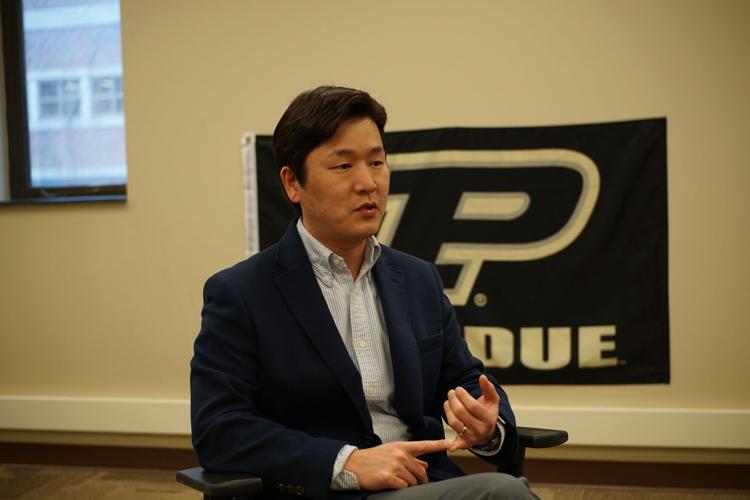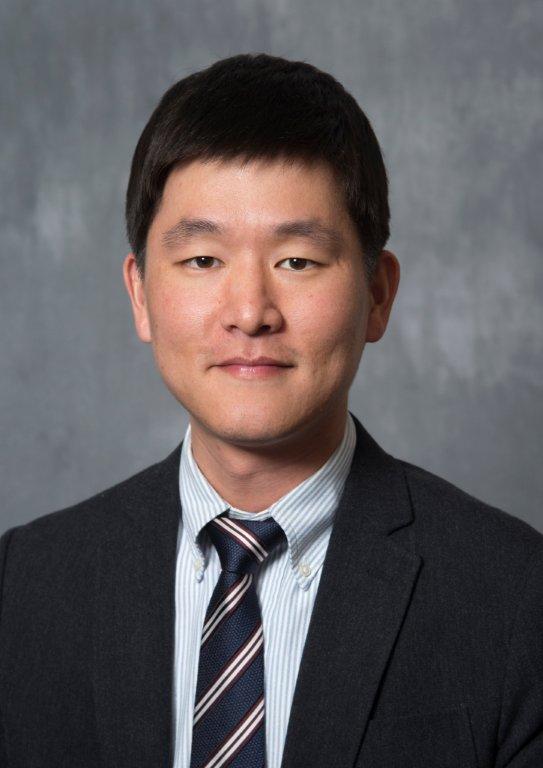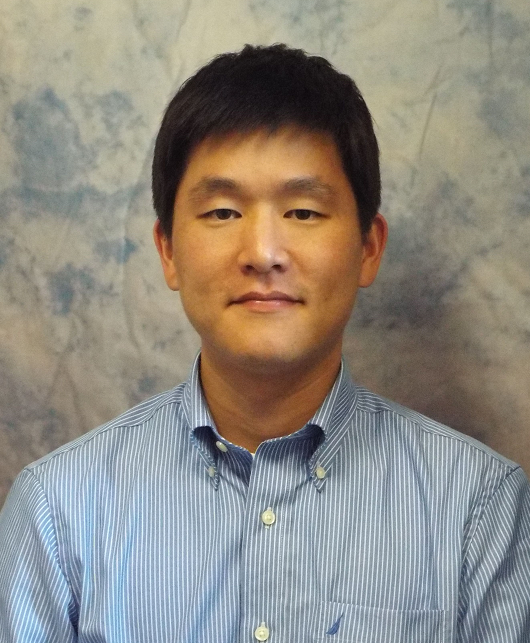Purdue & Research: Spotlight On CORIA & Tech Advancements
Is the future of innovation being forged in the crucible of academia, or is it emerging from the collaborative fires of global partnerships? The convergence of cutting-edge research, technological advancements, and international cooperation is reshaping the landscape of industry and the very nature of progress itself.
At the heart of this transformation lies institutions like Purdue University, a place where the pursuit of knowledge and the application of technology intertwine to create a fertile ground for innovation. The Center of Operation and Research for Industrial Advancement (CORIA) at Purdue, one of the Global Industrial Technology Cooperation Centers (GITCC) of the Korea Institute for Advancement of Technology (KIAT), exemplifies this commitment. This partnership underscores the importance of collaborative efforts in driving technological advancements and fostering global competitiveness. This is a testament to the university's dedication to not only advancing knowledge but also translating it into real-world applications and creating solutions for complex challenges.
| Category | Details |
|---|---|
| Name | Shyam Sundar Kannan |
| Current Position | Associate Professor & University Faculty Scholar, Department of Computer and Information Technology, Purdue University |
| Previous Positions | Postdoctoral Fellow at the Robotics Institute at Carnegie Mellon University; Assistant Professor at Sheffield Hallam University |
| Education | Postdoc at Katholieke Universiteit (KU) Leuven |
| Research Interests | Robotics, Computer & Information Technology |
| Contact | Department of Computer and Information Technology, Purdue University, 401 N., West Lafayette, IN 47907. |
| ORCID ID | Provides an identifier for individuals to use with their name as they engage in research, scholarship, and innovation activities. |
| Collaborators | Vishnunandan L. |
| Website Reference | Purdue University Official Website |
The work of individuals like Dr. Shyam Sundar Kannan, an Associate Professor and University Faculty Scholar in the Department of Computer and Information Technology at Purdue University, is instrumental in this evolution. His work, along with that of colleagues such as Vishnunandan L., is pushing the boundaries of knowledge and practical application in the field. Dr. Kannan's background, including his experience as a Postdoctoral Fellow at the Robotics Institute at Carnegie Mellon University and his time as an Assistant Professor at Sheffield Hallam University, provides him with a unique perspective. His contributions, informed by research conducted in institutions like Katholieke Universiteit (KU) Leuven as a postdoc, are shaping the future of technological innovation. The very essence of modern academia is the combination of theoretical understanding and practical application.
- Adult Content Search What To Know Before You Browse
- Explore Free Gay Porn Your Guide To Gay Torrent Sites More
In West Lafayette, Indiana, at Purdue University, the confluence of theoretical research and real-world application is a powerful force. The university, with its various centers and labs such as the M2M Lab, serves as a hub for innovation and a launchpad for future leaders. The work of researchers like Dr. Kannan, as well as that of his collaborators, adds depth and direction to the educational experience, helping to shape a generation of innovators and thought leaders. With his position as a faculty member, Dr. Kannan engages in research, scholarship, and innovation, contributing to the larger goals of the academic community, and he can be contacted for collaboration.
The role of the Korea Institute for Advancement of Technology (KIAT) in supporting the work at Purdue demonstrates the value of global partnerships. Such collaborations accelerate the pace of discovery, providing researchers with the resources and expertise they need to address complex challenges. This collaboration, the formation of the Center of Operation and Research for Industrial Advancement (CORIA) at Purdue, represents the collaborative spirit between academia, industry, and international partnerships. These collaborations create a rich environment where cutting-edge research and technological advances can flourish.
The significance of Dr. Kannan's work extends beyond his individual contributions. His work and the work of others, as well as the broader research environment at Purdue, are frequently supported by organizations such as the National Science Foundation (NSF). His research, often supported by grants from organizations such as the NSF, reflects the intersection of knowledge and impact. Furthermore, Dr. Kannan encourages those interested in contributing to his work to reach out, further highlighting the collaborative environment he has fostered.
- Axel Foley Detroit Lions Jacket Iconic Style From Beverly Hills Cop
- Cailey Flemings Net Worth 2024 Career Financial Success
The field of robotics, in particular, is experiencing rapid advancements. The work of roboticists like Min, who integrates both practical and theoretical approaches to realize the maximal impact of robotic technology, is central to this transformation. Dr. Mins perspective embodies the innovative and adaptable spirit of modern research, highlighting the importance of bridging the gap between theoretical knowledge and practical application. This area is being improved with the efforts of people like Matson, Jinung An, and Donghan Kim as is evidenced by their work on the improvement of a violinist robot using a passive damper device. The field robotics center at CMU, along with the Robotics Institute at Carnegie Mellon, represent some of the leading-edge institutions that are helping define the course of robotics.
The approval by Purdue University's board of trustees of promotions and appointments, such as that of Dr. Min, signals a commitment to excellence. This reflects Purdue Universitys commitment to advancing the careers of its faculty, along with the universitys drive to foster innovation and intellectual leadership. This is critical to the university's ability to sustain a dynamic and forward-thinking research environment.
The work being done is not just about creating technology. It is about shaping the future and improving the lives of people around the world. Developments like the creation of artificial intelligence are transformative, as Dr. Min mentioned. The development of technology, through places like the M2M lab at Purdue University, illustrates the power of human innovation and collaboration, in addition to opening up new possibilities.
In 2011, publications such as the IEEE International Instrumentation and Measurement Technology Conference, with contributions from researchers like U Kaur, VMR Malacco, H Bai, TP Price, A Datta, L Xin, and S Sen, provided an open forum for innovation. This illustrates the collaborative nature of research, and the crucial role that such gatherings play in spreading ideas and inspiring new endeavors. The ability to connect and share findings helps expand the reach and influence of research and technology, fostering innovation and progress.
The rise of technology companies such as Google, Alibaba, and JD, particularly after major announcements, showcases the industry's commitment to incorporating and commercializing new technologies. These companies recognize the immense potential of research conducted at universities such as Purdue, where the theoretical and practical are intertwined. As the world continues to be revolutionized by technology, the synergy between the academic world and the industrial sector will become even more important, leading to unprecedented growth and innovation.
The pursuit of knowledge is an ongoing process, one which demands a comprehensive approach and global teamwork. As the world continues to change, the impact of institutions such as Purdue University will only grow. The contributions of individuals like Dr. Kannan and his associates will be critical to creating a better future. These individuals are not only leaders in their individual fields, but also serve as an example of the larger global community that is dedicated to progress and exploration. The spirit of innovation will continue to thrive as long as there are individuals willing to collaborate to advance the future.



Detail Author:
- Name : Prof. Ova Schultz I
- Username : casper.cordie
- Email : jennie.mosciski@hotmail.com
- Birthdate : 1987-07-19
- Address : 146 Doris Loaf Fordfurt, SD 48910
- Phone : +1 (980) 272-5441
- Company : Schimmel LLC
- Job : Shipping and Receiving Clerk
- Bio : Consectetur maiores ut consequuntur qui. Quia tempore itaque aliquid autem voluptatem aspernatur ipsum. Est quo molestiae nihil doloremque laboriosam qui minus. Quis dolor qui recusandae.
Socials
facebook:
- url : https://facebook.com/karl2723
- username : karl2723
- bio : Voluptate quos et cumque ipsam molestias.
- followers : 3125
- following : 2734
tiktok:
- url : https://tiktok.com/@senger2020
- username : senger2020
- bio : Aut rerum et quos quod ad laboriosam. Aut sed saepe vel voluptatem repudiandae.
- followers : 738
- following : 1870
linkedin:
- url : https://linkedin.com/in/karl6778
- username : karl6778
- bio : Et unde molestias nesciunt beatae libero.
- followers : 1396
- following : 1734
twitter:
- url : https://twitter.com/sengerk
- username : sengerk
- bio : Corporis qui beatae blanditiis. Et dolores quos magnam. Quisquam fugit quod labore maiores et dolores. Quasi consequuntur dolorem at quia iusto ad.
- followers : 1686
- following : 869